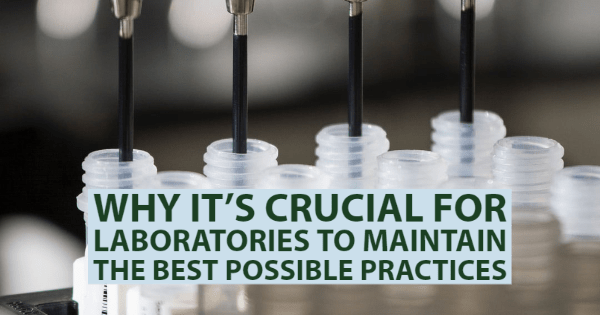
Laboratories hold a great deal of importance in the United States. In fact, the country is currently the number one producer of chemical products. These chemical products can include pharmaceutical products, as well as radiolabeled compounds and much more.
A number of different processes can occur within American laboratories, such as GMP synthesis and GMP API manufacturing; these processes can be rather delicate, and the slightest disruption or complication could potentially throw them off balance. Typically, laboratories are kept as clean and up to date as possible. Clearly, there is a higher standard for laboratories than other locations in terms of maintenance and upkeep.
There are a number of different consequences that can occur if pharmaceutical and drug research labs refuse to stay up to date. There are even greater consequences if their security and sanitation practices are not updated. Although the initial investment in new equipment may be intimidating for laboratories that have apparently been running properly without it, ultimately it's worth the effort, and this in itself is important for laboratory administrators to understand.
What Can Occur If Laboratories Are Not Properly Secured?
No matter what types of processes occur within a laboratory, whether they include GMP synthesis or the creation of brand new pharmaceutical drugs, it's important they are properly managed in a secure environment. While some might think of laboratory security as safeguarding drugs and formulas, which is important, the most crucial security maintains the cleanliness of the products.
Chemical products that are not properly housed can stand a serious threat to the general public. For that matter, it's important to remember that laboratory products may very well end up being distributed to the general public eventually. If a drug batch is contaminated with a specific type of infection, for example, it's very possible that the people that obtain or even ingest that batch will catch the infection.
The infection may then spread over time, from person to person. Eventually, it could very well grow out of control. In fact, a 2012 fungal meningitis outbreak that killed 48 people was traced back to a specific pharmacy. The pharmacy did not maintain its products with good practices, and this incident led to widespread scrutiny.
Therefore, cleanrooms in laboratories and pharmacies today must be carefully maintained and controlled. It's not just a matter of maintaining the actual security of the product, and ensuring that it is not stolen; it's also a matter of public safety in general.
Can Pharmaceutical Products Be Tampered With?
Pharmaceutical products can definitely be tampered with if they aren't kept in a carefully controlled and secure environment. Over the counter drugs were actually famously tampered with in the Tylenol poisoning cases occurred in the 1980s. In that particular situation, Tylenol bottles had been tampered with by an individual still unknown.
Several victims died due to this intentional poisoning, which led not only to an increase in security regarding drugs, but the advent of child-proof safety caps. Obviously, a situation like this was unique, but it can potentially be replicated if laboratories and pharmacies do not implement the proper security measures. It's not enough for those working in a laboratory to focus on processes like GMP synthesis; there are also practical considerations to keep in mind.
Why Is It Important For Laboratories To Replace Equipment?
Different types of lab equipment must be replaced at different intervals, and for different reasons. Some pieces of equipment must be replaced regularly because otherwise they would otherwise become dirty and possibly cause contamination or mold issues.
Other pieces of equipment, like flumes, for example, must be checked regularly to ensure that they allow the correct amount of airflow. Sometimes, the equipment simply needs to be replaced because it's aging, and the last thing a laboratory needs is an equipment failure.
Whether a lab is responsible for GMP synthesis processes or heavy duty research, it's important that it is kept in the best possible running order. Any flaws in a laboratory's system can potentially expand to what it produces, creating longstanding effects for the whole community.
